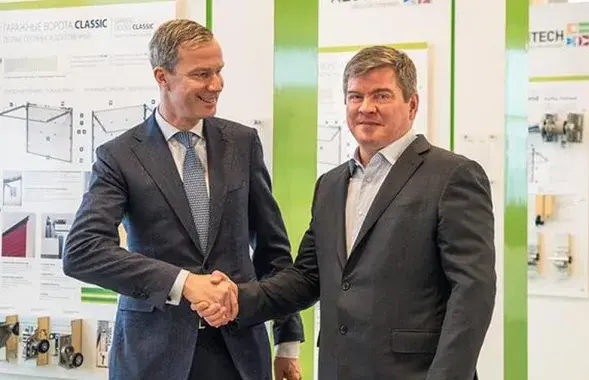Expert: Arab hotel development investments might cause inflation
The former Masherov Avenue will soon become Arabic. Up to 25 objects, worth $1.5 billion, will be built on the main thoroughfare in Minsk. A Lebanese company has been picked as the main developer.
This is a new construction boom when Arab companies buy out the best sites in the Belarusian capital.
Economist Leanid Zlotnikau thinks that the interests of the both sides meet together in this case. The Arab capital is traditionally invested in the service sector.
Zlotnikau: “Worldwide, Arabs invest in the hotel and trade business. They consider it to be a good investment. That’s why we observe those new trade centers or hotels being developed in Minsk”.
But even if Arabs wished to invest in the production, the Belarusian side would be against, because it “undermines the state’s control over economy”.
Zlotnikau: “The government is retarding the arrival of capital, because this could lower significantly the lower of the state’s control over economy. This means it would undermine the foundations of the command economy.
For example, Belarus buys fuel for collective farms and agricultural organizations at prices lower than at the world market. If the Russians bought Naftan (a Belarus-owned refinery), who could have forced them to sell petrochemical products inside Belarus at the prices lower than in Latvia or Germany?”
But it doesn’t seem to smell money here. In fact, this could spur up inflation.
Zlotnikau: “A manufactured product is not consumed by the whole population. Therefore, the inflow of investments in such a sector will lead to the inflation growth. For example, builders create a product which is owned by someone else. But the builders have the money and they will go to buy products created by others: meat, shoes…
It means they did not work to increase this product – meat, bread or shoes, but worked to create something produced by Arabs. They will get their money, and those who invested will get their money, too. There will be money, but there will be no product. This is a rule of economy: huge investments cause inflation”.
The economist continues that the authorities in Belarus should not keep bragging that the service sector is developing in this country and that we begin to resemble developed nations. One should understand that despite the Western nations gain over 70 percent of GDP from the service sector, those nations invest their capital around the world. This capital brings in huge money.
Zlotnikau: “They develop high technologies, while we sit on the third or even fourth technological level. Clearly, the development of the service sector without the development of production will not make people rich”.
Economist Yaraslau Ramanchuk thinks that the whole point is that Belarusian companies and officials do not stick to business ethics. That’s exactly what the Arabs need.
“The Arab business understands very well the mentality of a totalitarian authority. They don’t really care much about the morals and business ethics. Therefore, the Belarusian authorities and the Arab businesses have found one another.
In the first place, companies and officials in Belarus don’t want to have Germans, the French or Swedes as their partners who follow ethical standards. They want their partners to come from the countries where grey schemes are part of the business routine. In this case, the allocation of land or purchase orders is awarded without tenders, without transparency”.
Economist Leanid Zaika compares this cooperation with “turban-wearing investors” with a desire to marry a Sheikh and earn money:
“Let’s say that a turban-wearing investor arrives from the Saudi Arabia or the United Arab Emirates. Do you think he cares about creating jobs for you and giving you a good life? If you still believe in this, you’d better marry this Sheikh".


















